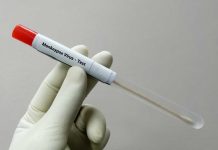The Food and Drug Administration is investigating nearly three dozen cases of people suffering from seizures after vaping, but it still lacks sufficient information to determine the causation relationship between the action and the medical event.
The Food and Drug Administration just issued a special announcement about a new health risk that they worry may be linked to e-cigarettes: seizures.
Ever since June 2018, the agency stated what seems to be a trend in reports. Apparently users have been describing seizure like events that may be connected with their e-cigarette use.
The FDA developed a Safety Reporting Portal through which it collects information about the risks of vaping. Here e-cigarettes users can share their experiences. Between reports via that portal and from poison control centers, the FDA counted 35 reports of seizures between 2010 and early 2019 that may be related to vaping. Most of those, it said, involved “youth or young adult users.”
A link between nicotine poisoning and seizures has already been made, but vaping side effects is still under the radar. Some of these seizures might be unconnected, or some might be caused by inhaling massive amounts nicotine.
“To get enough nicotine in your body to cause seizures by smoking cigarettes is well-nigh impossible,” says medical toxicologist Edward W. Boyer, an associate professor of emergency medicine at Brigham and Women’s Hospital.
There is no clear pattern to the seizures: Some who had seizures were vaping for the first time, and some had been using these products for a while. The timing of the seizures also ranged from after a few puffs on an e-cigarette to a full day later. Several people had previously received a seizure diagnosis, and a few had also been using other drugs, like marijuana or amphetamines, before the seizures occurred.
“WE CAN’T YET SAY FOR CERTAIN THAT E-CIGARETTES ARE CAUSING THESE SEIZURES.”
A study in February looked at the rise of nicotine concentrations in vaping products over recent years, suggesting that leading e-cigarette company Juul Labs spurred a “widespread rush” of companies seeking to boost their own concentrations in order to mirror Juul’s success.
The FDA asks doctors and users to be on the lookout for e-cigarette side-effects
The agency has asked health care practitioners to be on the lookout for potential vape-related seizures. And it wants e-cigarette users to tell their doctors if they experience any symptoms of seizures, which the CDC says can range from shaking to confusion.
The agency also asks that people report health and safety issues with vapes to their Safety Reporting Portal, and list details including the manufacturer and brand of e-cigarette that they’re using, as well as where they bought it.
The news may also spook investors who are already fearing the FDA will tighten e-cigarette restrictions even more as it tries to control what the agency has labeled an “epidemic” of teen vaping.
The agency has made a number of other moves in recent months to counter vaping among kids, including warning and fining retailers for illegally selling vaping products to kids. And it’s also making efforts to uncover whether they are marketing products illegally and outside the agency’s compliance policy.
And, in January, the agency even held a public hearing to consider the role of drug therapies to get kids to quit vapes and other nicotine products.
Image source: NBCnews.com




